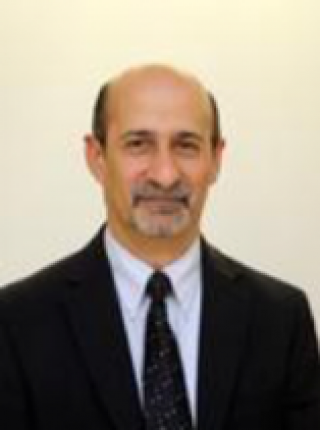Biography
Professor Jamshed Bomanji is widely respected throughout the UK NHS as an excellent Nuclear Medicine consultant, researcher, educator and mentor and he serves on several national and international advisory expert groups and committees. Professor Bomanji is Head of Clinical Service at the of Institute of Nuclear Medicine (INM) -the largest and most modern Nuclear Medicine department in the UK National Health service. He is also Clinical Lead for Neuroendocrine tumour imaging at UCLH and coordinates numerous multidisciplinary meetings and chairs the UCLH Radiation Protection advisory service. He is employed full-time by the UCLHospitals NHS Foundation Trust and holds an Honorary position as Professor of Nuclear Medicine with UCL.
Prof Bomanji is nationally and internationally renowned for his leadership of Nuclear Medicine, taking forward the specialty globally, highlighting its applications for diagnosis, treatment and follow-up of patients with Tumours, Infections and a variety of inflammatory disorders. He has fulfilled both his clinical service and academic roles with great distinction and has been awarded a silver ACCEA Bronze award in 2012 and a Silver ACCEA award in 2015, renewed in 2019 which he holds since. He has published >290 papers/reviews/books, (h-index 50, i10-index 160). His contributions to PET/CT Clinical Reference Groups on behalf of NHS England have also received recognition from Sir Bruce Keogh (ex-National Medical Director, NHS England, Specialised Services).
His leadership of Nuclear Medicine services has led to expansion of the specialty within the UK and globally. With the changing NHS landscape, Professor Bomanji as Clinical Nuclear Medicine lead, led and won a £76.5 million 7yr bid in 2017 for establishing a Phase II NHS(E) PET/CT contract for North & North East London. Central to his strategy were developing clinical, academic and managerial partnerships with 3 NHS Trusts (UCLHospitals, Royal Free Hospital and St Barts Trust) for covering a population of >5million. This service is being used by >10 hospitals outside London. He has recently facilitated and delivered the radio-pharmacy contract.
Prof Bomanji introduced the first clinical PET/CT service for prostate cancer imaging with Ga-PSMA in UK 2015-16. Using novel PET technologies, he has developed methods to shorten examination times by 27%, increasing patient throughput over the years saving time and money. He has also developed new PET-CT/MRI services for Radiotherapy Planning reducing radiation exposure by 30%.
He also developed & facilitated new (since 2015) cross-speciality, multi-institutional translational research programs with extensive collaborations within UCLH, Nationally & Internationally through the International Atomic Energy Agency (Vienna) for Prostate Cancer and chronic infections (Tuberculosis).
His collaborations with radiotherapy have led to expansion of Paediatric Radionuclide therapy services at UCLH as centre of excellence Nationally & Internationally for children with Neuroblastoma.
Developing new tracer Lab technology have led to local production of F-DOPA, a tracer which will provide cost effective service at UCLH for movement disorders.
For COVID-19 Professor Bomanji prepared the department and other NHS NM services to run a safe service during COVID-19 pandemic. He wrote and alerted the Nuclear Medicine community nationally and internationally on preparation required for the COVID-19 pandemic and gave guidance on how to safely conduct Nuclear Medicine procedures and protect staff during the pandemic. He worked with partner organisations and gave expert guidance on Webinars held by IAEA, and attended by 920 participants. In collaboration with colleagues wrote guidance on starting service in the current new normal post-COVID period.
Research Summary
His main research interests are in using unsealed radioactive agents for benign and malignant diseases particularly in Oncology, Nephrology/Urology, Infectious disease, Cardiology and Neuro imaging. To this end, over the past 33 years I have developed/facilitated cross-speciality, multi-institutional translational research programs with focus on the following:
- The testing of new radiation detectors; and imaging devices;
- The development and application of computerized tomography (SPET and PET) to Nuclear Medicine and imaging;
- Developing and promoting hybrid imaging in clinical practice
- The development, evaluation and clinical utilization of new radiopharmaceuticals and their application in Oncology, Nephro-urology, Cardiology, Infectious diseases, and Neurology;
- The development, testing, and implementation of clinical strategies involving non-invasive medical imaging techniques;
- More recently, capacity building, training the next generation of imagers, fostering and supporting their research interest and advocacy activities in Nuclear Medicine
 Close
Close


